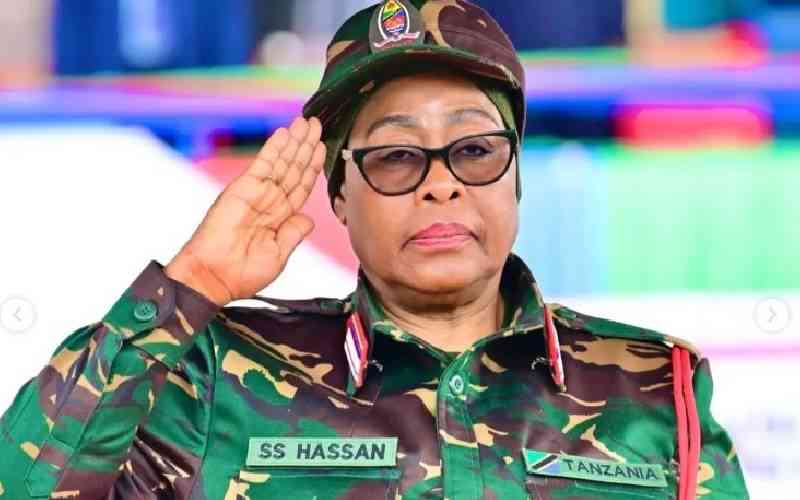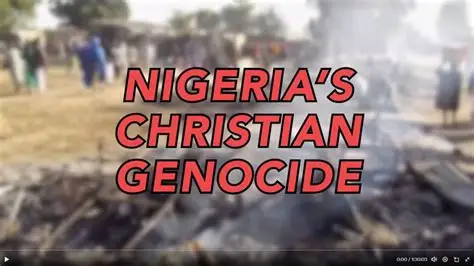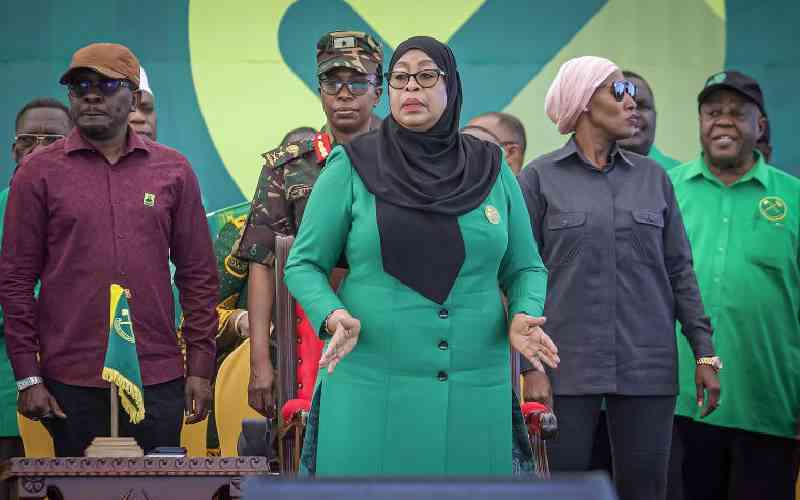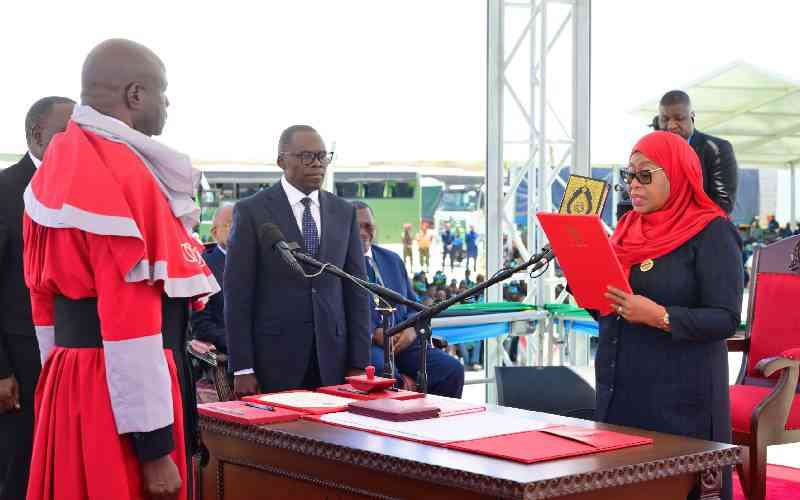Tanzania's Political Landscape Erupts Amid Election Fallout and Internet Blackout

Tanzania's presidential election on October 29, 2025, culminated in President Samia Suluhu Hassan securing a second term with nearly 98 percent of the vote, amidst a backdrop of profound controversy and widespread public dissent. Critics swiftly condemned the process as "fundamentally flawed" and a "sham," pointing to a pre-election environment characterized by the exclusion or imprisonment of key opposition candidates and a counterforce determined to maintain the status quo against demands for genuine electoral reforms, championed by groups like CHADEMA with the slogan #NoReformsNoElections.
The election day itself ignited widespread protests across major cities including Dar es Salaam, Arusha, Dodoma, and Mbeya. These demonstrations, fueled by frustration over a perceived undemocratic process and ignored public voices, were met with police crackdowns and military deployment. Allegations of electoral irregularities were rife; African observers from the Southern African Development Community Electoral Observation Mission (SEOM) concluded that in most areas, voters "could not express their democratic will." They noted a "very low" turnout despite the electoral commission's claim of 87 percent, observed "multiple orderly stacked ballots" suggesting ballot stuffing, and reported instances of people casting multiple votes. The Tanganyika Law Society also highlighted a significant rise in political abductions, with 83 confirmed since 2021 and an additional 20 in recent weeks, painting a picture of a tense and intimidating political atmosphere.
Further complicating the situation, a five-day nationwide digital blackout commenced on October 29, coinciding with the election. While Cloudflare Radar reported a partial restoration of internet services after 14:00 UTC on Monday evening, NetBlocks confirmed that significant restrictions remained on multiple social media and messaging platforms. This internet shutdown drew international criticism, with digital rights and press freedom advocates emphasizing that the incident severely limited election transparency and the free flow of information.
In the aftermath, the security situation across Tanzania remained tense. The U.S. Embassy in Tanzania issued an advisory reporting a nationwide curfew from 6 PM to 6 AM, with stricter enforcement in parts of Dar es Salaam. The advisory also noted that stores of food, fuel, and cash were running low in certain areas, though international airports remained operational with intermittent flight services.
President Hassan's inauguration on November 3, 2025, held at Nishani Grounds in Chamwino District near Dodoma, was notably skipped by several key leaders from East and Southern Africa, signaling international unease. On the same day, President Samia Suluhu also saluted the Tanzania People's Defence Forces (TPDF) as they marked their 60th anniversary.
International reactions to the election were sharply divided. While the African Union (AU) Commission Chairperson Mahmoud Ali Youssouf quickly congratulated President Hassan on her "election victory," this message was widely perceived as "tone-deaf" and an "endorsement of injustice" by Tanzanian citizens and external critics. This stance drew accusations of "moral evasion" and undermining the AU's credibility, especially given its own charter's commitment to democratic principles and transparent elections. In stark contrast, the European Parliament publicly criticized the Tanzanian elections, describing them as "neither free nor fair" and conducted "under an atmosphere of repression, intimidation, and fear," citing arrests of opposition figures, restrictions on observers, and media censorship. Although observer missions from the AU, East African Community (EAC), and SADC were deployed, concerns lingered regarding restrictions on their accreditation and their ability to fully address grievances, further casting a cloud of doubt over the credibility of the entire electoral exercise.
You may also like...
The Crack in Nigeria’s Christian Genocide Debate

As violence grips Nigeria’s Middle Belt, the world debates whether it’s genocide or chaos. With Donald Trump’s threats t...
Pundit Power Play: Troy Deeney's Weekly Premier League Hot Takes Revealed!

BBC football pundit Troy Deeney will present his weekly choices for the Premier League's team and manager of the week af...
Google's Shocking Refusal: Disney's ABC Blacked Out on YouTube TV for Election Night

A fee dispute between Disney and Google has led to a blackout of ESPN, ABC, and other Disney networks on YouTube TV, now...
Taiwan Creative Content Fest Kicks Off with Global Buzz and Local Hit '96 Minutes' Success

The 2025 Taiwan Creative Content Fest (TCCF) has opened with record international attendance, signaling a dramatic turna...
Shocking Assault Halts Todd Snider Tour! Americana Star Injured Before Salt Lake City Show

Americana singer/songwriter Todd Snider has canceled his entire “High, Lonesome and Then Some 2025” tour after sustainin...
Queen of Global Tours: Shakira Claims Billboard Icon Award, Declares She's Just Warming Up!
Shakira received the inaugural Billboard Global Touring Icon Award for her record-breaking Las Mujeres Ya No Lloran Worl...
Loose Women's Charlene White: Unveiling Her Personal Poppy Stance

Loose Women panellist Charlene White sparked debate by choosing not to wear a poppy on air, a decision that drew both cr...
Wizkid’s Son Boluwatife Balogun Poised for Music Debut with First Song!

Wizkid's son, Boluwatife Balogun, is reportedly gearing up to release his debut track, showcasing a distinct hip-hop and...

&format=jpeg)


